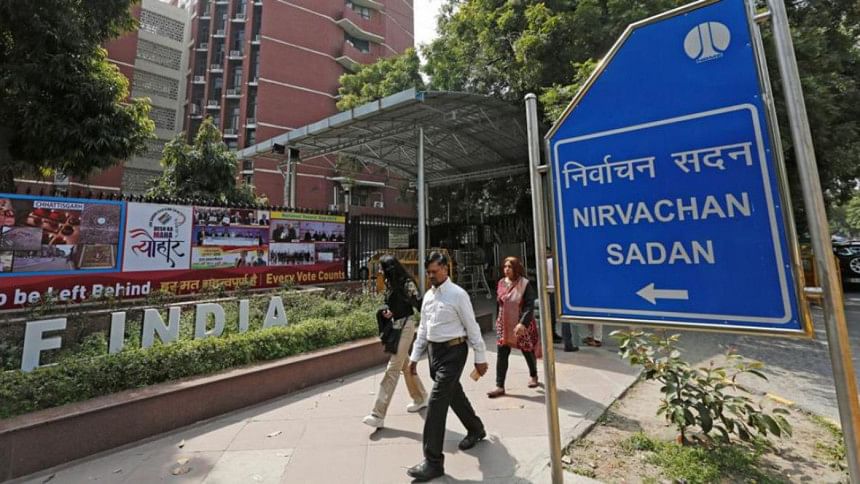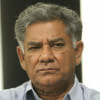Indian EC’s unprecedented credibility challenge

The Indian general election, being held in seven phases, will have its sixth round of polling today, on May 12. Five phases of voting have already been completed, in which the fate of 425 constituencies was decided. Although election results will be published on May 23, election analysts say that Narendra Modi's BJP is unlikely to gain an absolute majority like in the 2014 election. The last three phases, including the fifth, might prove to be crucial for the government in power. The sixth phase will be conducted in 59 seats spread over seven states. The election for the 17th Lok Sabha would conclude with the seventh phase scheduled to be held on May 19.
The 2019 Indian general election is being touted as the world's largest exercise in democracy because of the size of the electorate. It is, therefore, natural that the entire democratic world would closely observe the electoral development in the country and especially the performance of the Election Commission of India (ECI).
The ECI started as a one-member commission, with the Chief Election Commissioner (CEC), which later developed into a multi-member body in 1989 with the enactment of a law and an amendment to the Constitution. Since then, the ECI has been functioning as a three-member commission mostly comprised of former secretaries, usually from the Indian Administrative Service (IAS) cadre. The current, 23rd ECI is headed by Mr Sunil Arora (ex-IAS) and two other commissioners. It had earlier completed all logistical arrangements for the 900 million voters with 1.034 million polling booths and 2.3 million Electronic Voting Machines (EVMs) and voter-verified paper audit trails (VVPAT). To conduct such a mammoth election, around 10 million government or semi-government officials have been engaged.
The current ECI has, without any doubt, passed the test of logistical challenges but its performance at the policy level has been questioned. The ECI is constantly put to challenge by the politicians, especially the top leaders of the party in power. This time it has been challenged by top politicians violating the Model Code of Conduct (MCC), prepared in 1962. The MCC guides the electoral campaign and sets a perimeter of conduct for the candidates and participating parties. There have been serious violations of MCC by the senior leaders of the ruling and opposition parties including Prime Minister Modi and BJP chief Amit Shah. The ECI has taken a lot of flak for its initial reaction, or lack thereof, to this issue.
Also, it was for the first time that the Indian Armed Forces have been dragged into the political fray in an election campaign. It is a flagrant violation of the MCC. The reference to Armed Forces for political purposes was protested by ex-servicemen in a letter to the president of India. Such a protest is an extraordinary move in the history of Indian elections. There have been a number of complaints made by the opposition as regards violations of this kind by the top ruling party leaders, but the ECI has kept silent until the Supreme Court of India intervened, which was termed by experts as unprecedented since Article 329 of the Constitution bars courts from interfering in election affairs.
Notwithstanding this bar, the SCI had to "interfere" because of the ECI's inaction which has been termed by a group of 66 retired bureaucrats and diplomats, in a letter to the president, on April 8, as "weak-kneed conduct." This group accused the ECI, an independent constitutional institution, of "suffering from a crisis of credibility today". Taking note of such public criticism, the SCI, while hearing a Public Interest Litigation (PIL), asked the ECI to "wake up" and exercise their power or else face the court's wrath. Earlier, the ECI showed their helplessness stating that they are "toothless" without power as far as the implementation of MCC is concerned, which is not backed by any legal authority. The MCC was formed an agreement with the political parties that became a "customary rule" admissible in the court.
Subsequently, the ECI acted but only selectively, sparing the PM and BJP chief. The ECI took 25 days to give a clean chit to both of them, but the same treatment was not accorded to the opposition. This and many such instances have brought the ECI under constant criticism. The current ECI has arguably proven to be the weakest in terms of implementing the enormous power that they have been bestowed upon. Many analysts say it has something to do with Modi's rule in the past five years which saw erosion of Indian democratic institutions.
Needless to say, questions about the credibility of the ECI are not only a cause of concern for the Indian electoral governance but also for other fragile democracies where the Indian model is lauded and imitated. It is, however, not the first time that the conduct of the ECI has been questioned, but never in this manner. What has gone wrong with the ECI? Ex-CEC Dr SY Quraishi said, "To my mind, the genesis of the problem lies in the flawed system of appointment of election commissioners, who are appointed unilaterally by the government of the day." According to him, in the absence of a law or collegium for the selection of the ECI members, these appointments are politicised. There have been a number of Law Commission recommendations for a permanent legal collegium, "but successive ruling dispensations have ducked the issue, not wanting to let go of their power," said Quraishi. (The Hindu, April 18, 2019) Incidentally, it is only in Bangladesh and India, among the sub-continental countries, that no such law or collegium exists. Appointments are made by the governments of the day, and although electoral appointments in Bangladesh were made through ad-hoc search committees in the last two cases, questions remain about the neutrality of their decisions.
However, right now, the question is whether any biased member or members of the Indian EC can unduly influence the results of the election? The simple answer is, there is little chance of that happening. At the grass roots level, the electoral machinery is run by 543 returning officers (RO) with as many assistant returning officers (ARO) under the Chief Electoral Officer (CEO) per state and union territory, with macro- and micro-observers, appointed by ECI under Section 20(B) of the Act, and hundreds of thousands of other officials, which makes it a gargantuan structure that guarantees a free, fair and acceptable election. There is no record of any Indian political party ever refusing the result of an election in totality, however weak the ECI was. Yet the irony is, the current ECI has already been identified as "weak-kneed". One of the reasons for that is the "ad-hoc" methodology of appointment resulting in "political appointments". This methodology needs to be changed, in both Bangladesh and India, so that these constitutional institutions function without being subdued by the governments of the day.
Dr Sakhawat Hussain is a former Election Commissioner and a retired Brigadier General, Bangladesh Army.

 For all latest news, follow The Daily Star's Google News channel.
For all latest news, follow The Daily Star's Google News channel. 



Comments